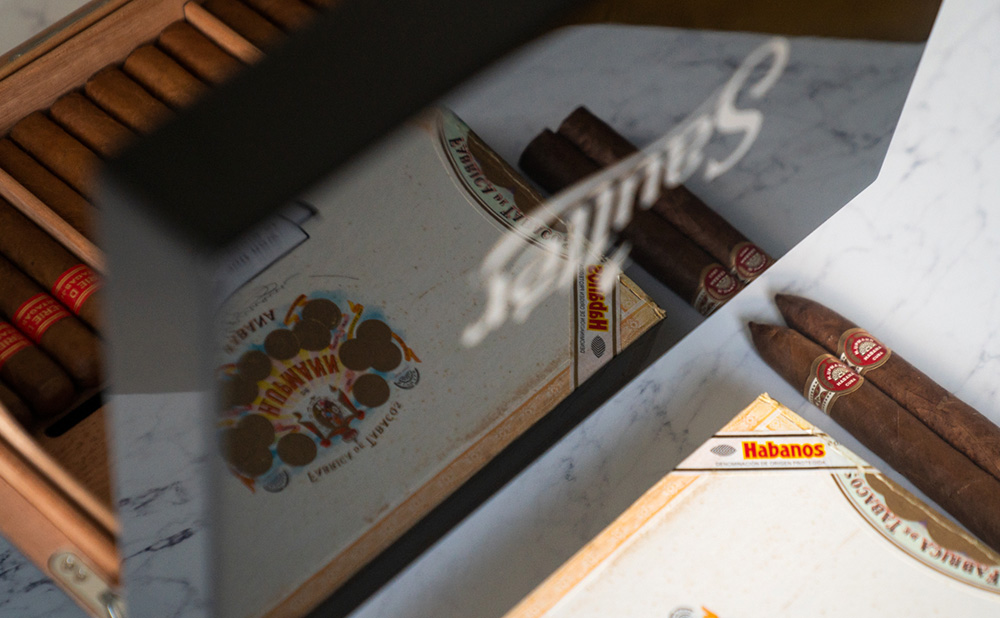
Cigar Travel
AS YOU may know, El Jeffe Laurence Davis has been on his travels and this time, he is venturing deep
Sautter, the world renowned London Cigar store, was founded over 50 years ago in the heart of fashionable Mayfair. It has earned an enviable reputation in the world of cigars for aged and vintage Cuban cigars which makes it a magnet for lovers of exceptional cigars.
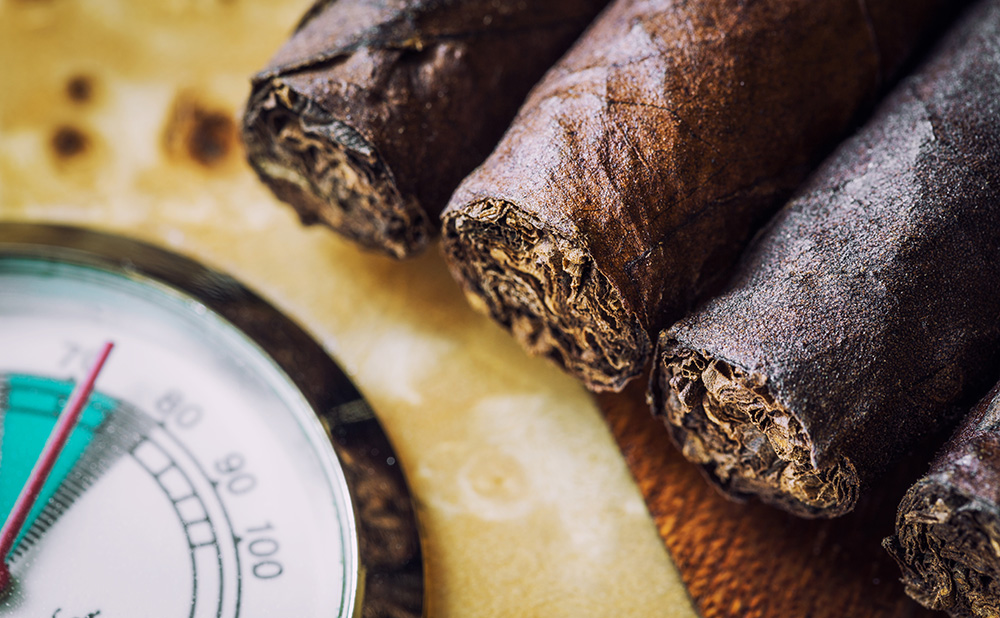
The cigar world is changing.
You may not notice it much at the sharp end – where consumers buy and enjoy their cigars – but it’s changing nonetheless.
In a statistic that may shock many Havana lovers, Nicaragua last year overtook Cuba as the biggest exporter of premium cigars in the world.
Now, as we all know, greater volume doesn’t necessarily mean greater product; but it’s a jaw-dropping achievement, nonetheless. Cuba has wielded a virtual monopoly over world cigar markets for generations.
In London alone, sales of Cuban cigars vastly outrank all other comers; while in-roads have been made, the London market remains a staunchly loyal Cuban lover. That changes outside the capital, but the way, but for now, let’s stick to the metropolis.
Sautter is unashamedly a Cuban cigar seller too. Bump into El Jeffe, Laurence Davis, and he’ll tell you in no uncertain terms why he loves to smoke Cuban cigars above all others. They suit his palate and he believes with a passion that there are no other people on the planet with the tobacco lore so deeply ingrained in their national psyche.
But the achievement of the Nicaraguans is worthy of our attention, nonetheless. The extraordinary cigar expertise and funds that have poured into the country in the last 20 years have pulled it up by the bootstraps and given a beleaguered people a chance of a better life.
Which is why the recent troubles in the country are all the more depressing. The one time Sandinista saviour, Daniel Ortega, is now accused of becoming that which he once despised; his nation’s dictator. There have been hundreds killed on the streets, many of them civilians and students. Terror stalks the night once more in Nicaragua.
Nicaragua has been ruled by dictatorship for centuries. Some have been better than others, but all have relied on quashing opposition and keeping a firm boot on the neck of the working classes. To see deaths on the street of Estelí – the primary tobacco town in the north of the country – is heartbreakingly reminiscent of the bad old days, when entire communities were torn apart by internal conflict, the flames of which were inevitably fanned by US interests.
Those who began the Nicaraguan cigar industry as we know it back in the 1960s were exiled Cubans, fleeing Castro’s Revolution which spilled them from their lands and homes. Since then, Nicaraguans have garnered their own tobacco knowledge and it has become a crucial part of their culture.
For now, cigar makers in Nicaragua are managing, with difficulty, to keep their supply lines open. It’s not easy. They keep quiet and try to keep their businesses alive. In private, they may hate the excesses of Ortega’s squads, but in public they fear speaking out. Foreign nationals in Nicaragua have been threatened with instant deportation if they side against the Government.
So, while you may be an ardent Cuban cigar lover – like Laurence Davis – never forget that we are part of a greater cigar smoking brethren. Spare a thought for our Nicaraguan brothers and sisters of the leaf. Perhaps more importantly, spare them a few pennies and buy their rich, robust cigars. Families, communities, towns and cities there rely on cigars to keep them afloat.
Keep them in your thoughts as you smoke.

AS YOU may know, El Jeffe Laurence Davis has been on his travels and this time, he is venturing deep
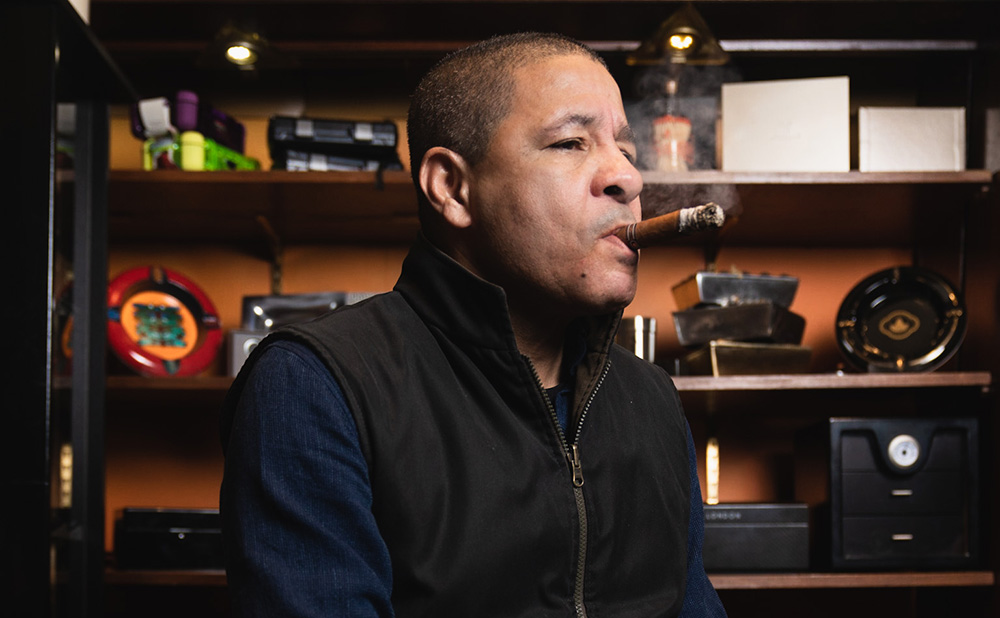
At Sautter Cigars, we have always been proud to serve a discerning community of cigar lovers who appreciate the rich
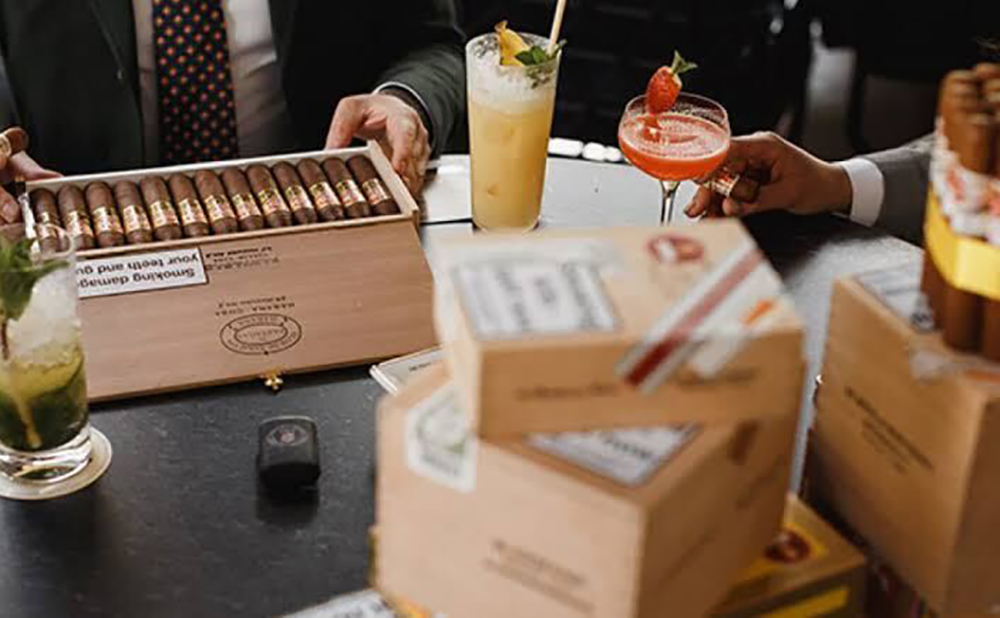
THE days are getting longer! The sun has miraculously appeared, if only for a moment or two through the silken

On behalf of the whole Sautter family, we’d like to wish you a very Merry Christmas and a very Happy
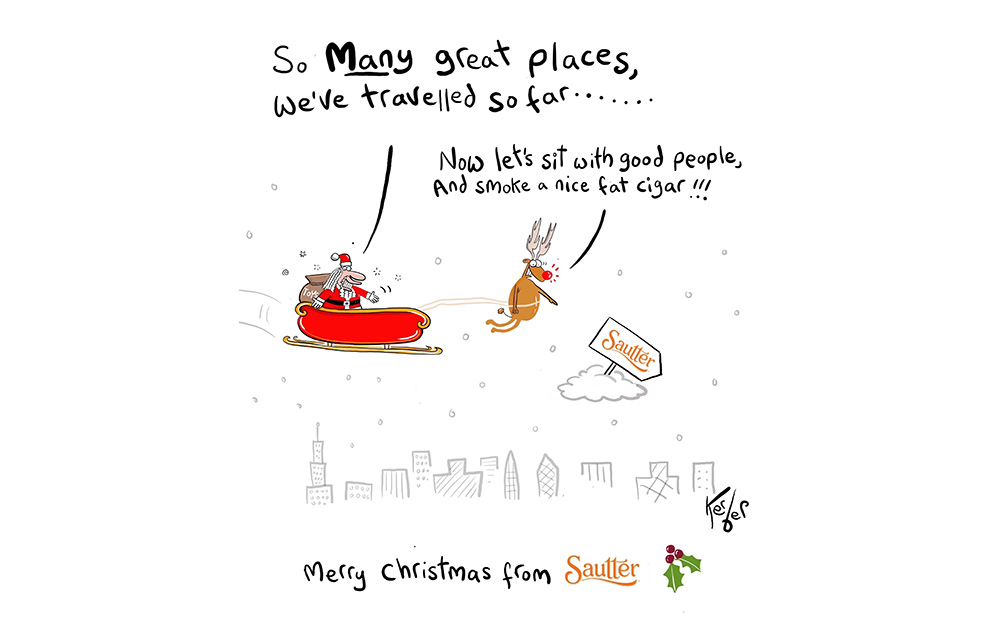
THE GOOSE is loosening its belt another notch; we’ve already been subject to incessant festive muzak for weeks on end;
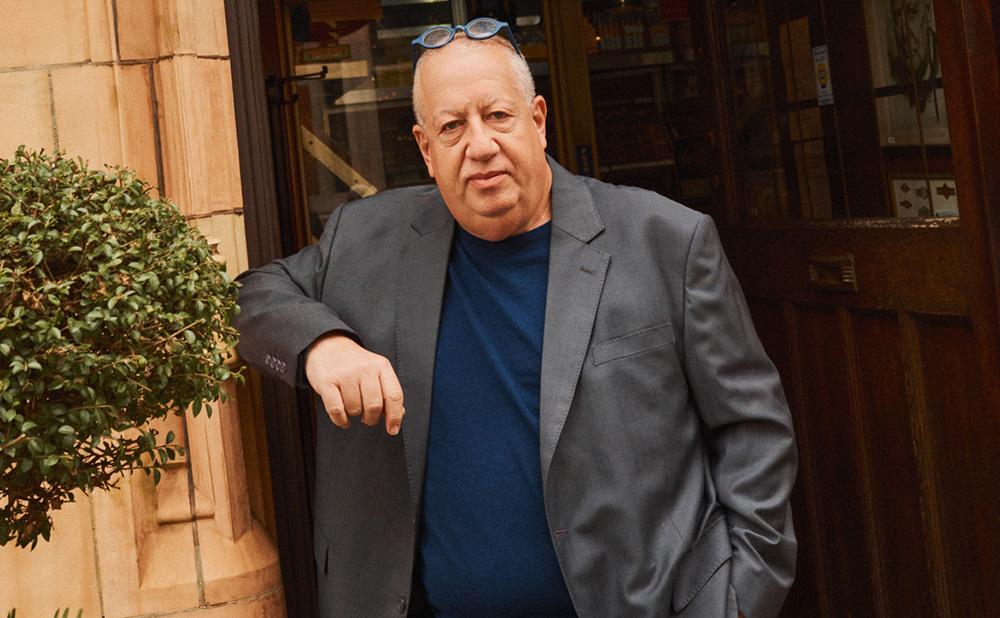
We’re excited to share that Sautter of Mount Street is proudly featured in the latest Mount Street Neighbourhood campaign, “Meet
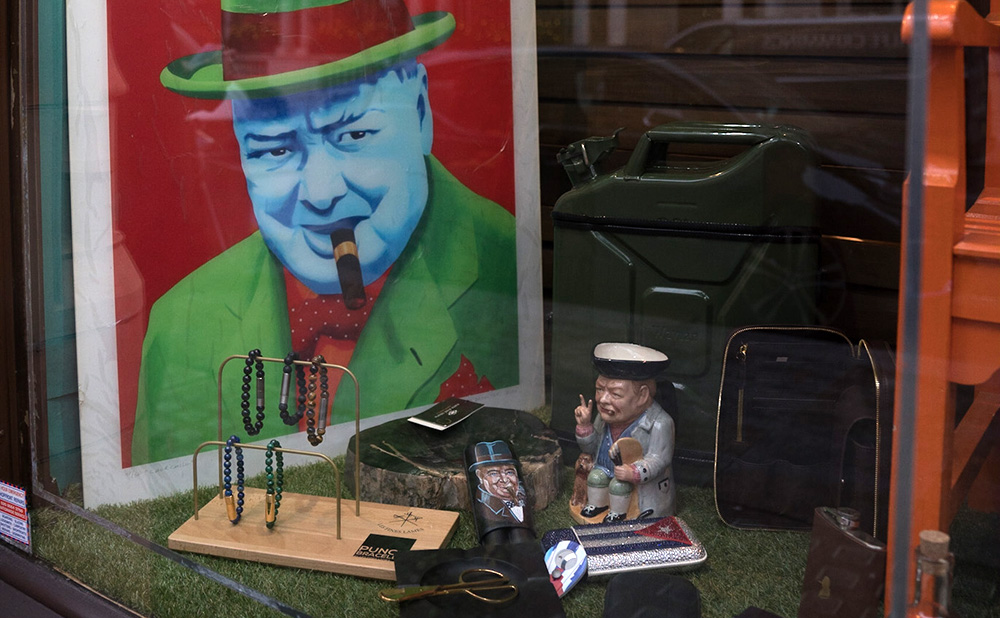
SO – the new Labour Government’s most pressing concern is stopping a chap having a smoke with their pint in
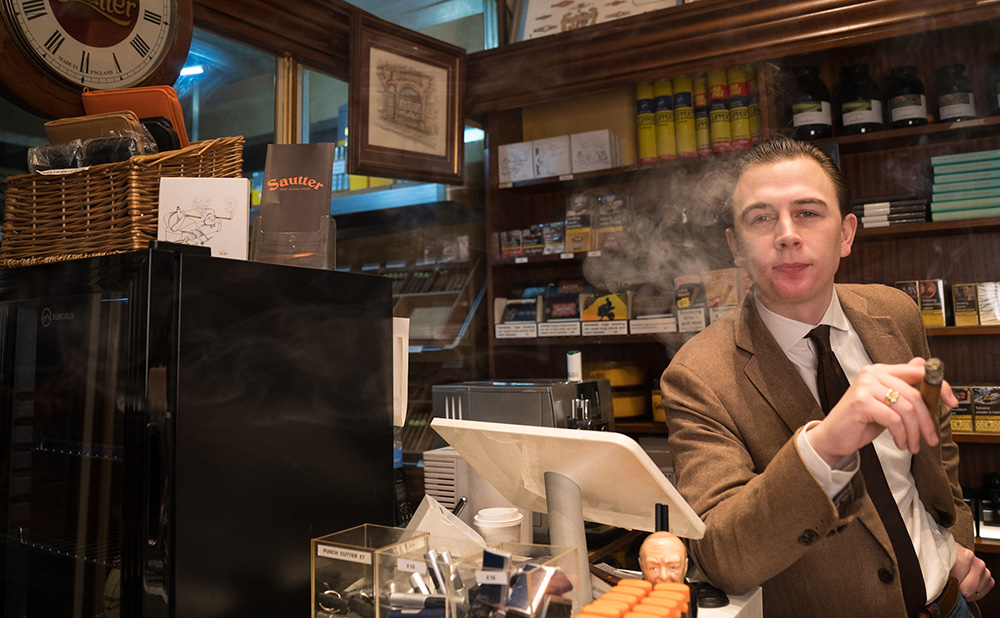
IT’S a very noticeable phenomenon that videos or articles on the basics of cigar smoking ‘outperform’ their ratings rivals about
Sautter, the world renowned London Cigar store, was founded over 50 years ago in the heart of fashionable Mayfair. Sautter has earned an enviable reputation in the world of cigars for aged and vintage Cuban cigars which makes it a magnet for lovers of exceptional cigars.
Knightsbridge Store
8 Raphael Street, London, SW7 1DL, UK
+44 (0)20 7581 5898
Mayfair Store
106 Mount Street, London, W1K 2TW, UK
+44 (0)20 7499 4866
Share your email address with us and stay up-to-date with our events, products & exclusive offers!
©2025 Sautter Cigars. Desmond Sautter Ltd. All rights reserved. | Design & build by aminocreates.
| Cookie | Duration | Description |
|---|---|---|
| cookielawinfo-checkbox-analytics | 11 months | This cookie is set by GDPR Cookie Consent plugin. The cookie is used to store the user consent for the cookies in the category "Analytics". |
| cookielawinfo-checkbox-functional | 11 months | The cookie is set by GDPR cookie consent to record the user consent for the cookies in the category "Functional". |
| cookielawinfo-checkbox-necessary | 11 months | This cookie is set by GDPR Cookie Consent plugin. The cookies is used to store the user consent for the cookies in the category "Necessary". |
| cookielawinfo-checkbox-others | 11 months | This cookie is set by GDPR Cookie Consent plugin. The cookie is used to store the user consent for the cookies in the category "Other. |
| cookielawinfo-checkbox-performance | 11 months | This cookie is set by GDPR Cookie Consent plugin. The cookie is used to store the user consent for the cookies in the category "Performance". |
| viewed_cookie_policy | 11 months | The cookie is set by the GDPR Cookie Consent plugin and is used to store whether or not user has consented to the use of cookies. It does not store any personal data. |